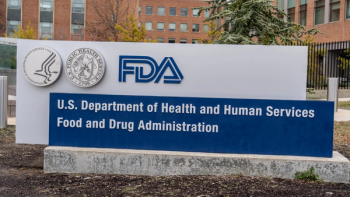
How an Upcoming BIS Investigation Could Make Tariffs Even More Complicated: Q&A with Jason Waite
The investigation would determine whether excessive imports pose a threat to national security.
While the pharmaceutical industry is making plans to deal with proposed tariffs on imported goods, many companies are struggling due to the chaotic and uncertain nature of the tariffs. One factor that may add more complexity to the situation is an investigation being carried out by the Bureau of Industry and Security (BIS). The agency is set to deliver a report which will determine if excessive imports pose a threat to national security, which will likely impact how President Trump plans to move forward with his tariff plan. Jason Waite, partner and leader of Alston & Bird’s international trade and regulatory group, spoke with Pharmaceutical Executive about this investigation and the tariff situation in general.
Pharmaceutical Executive: President Trump has announced a variety of tariffs, each with different goals. Which tariffs will have the most impact on the Pharma industry?
Jason Waite: Thus far, the recently announced tariffs have not heavily impacted the pharma industry. In fact, pharmaceutical products are explicitly exempted from the so-called reciprocal tariffs. However, in April, at the President’s direction, and under the authority of Section 232 of the Trade Expansion Act of 1962, the Secretary of Commerce initiated an investigation to determine the effects on the national security of imports of pharmaceuticals and pharmaceutical ingredients, including finished drug products, medical countermeasures, critical inputs such as active pharmaceutical ingredients (API), and key starting materials and derivative products. This is one of six Section 232 investigations initiated by the Administration so far this year.The outcome of this investigation will have a significant impact on the pharma industry.
PE: How reliant is the pharmaceutical industry on imports?
Waite: The pharmaceutical industry relies heavily on India for generic medicines and China for APIs, intermediate, and key starting materials. Indeed, the 1994 Agreement on Trade in Pharmaceutical Products permanently eliminated tariffs on most pharmaceutical products and the substances used to produce them.
PE: Will the BIS investigation potentially lead to new tariffs that President Trump has yet to publicly announce or discuss?
Waite: Yes. Under Section 232 the Secretary shall submit to the President a report on the findings with respect to the effect of the importation of pharmaceutical products upon the national security. If the Secretary finds that such articles are being imported into the United States in such quantities or under such circumstances as to threaten to impair the national security, the Secretary shall so advise the President in his report. The President then has the authority to “adjust imports” of pharmaceuticals. The most likely means of adjustment, based on both President Trump’s public comments and on historical use of Section 232, is the imposition of tariffs. By way of comparison, Section 232 is already the basis for the tariffs on steel, aluminum, and automobiles.
PE: How can Pharma companies that rely on international trade navigate around these potential tariffs?
Waite: This is difficult to say without first knowing the outcome of the 232 investigation and the details of any resulting tariff orders. But companies can begin by mapping out their own supply chains—identifying their imported products, the sources of those products, and the commercial arrangements underlying those supplies. Diversification of supply, strengthening relationships with key vendors, and resourcing customs compliance, tax planning, and sourcing departments are all steps that can help position companies to nimbly respond to and mitigate the impact of new tariff regimes.
Newsletter
Lead with insight with the Pharmaceutical Executive newsletter, featuring strategic analysis, leadership trends, and market intelligence for biopharma decision-makers.



